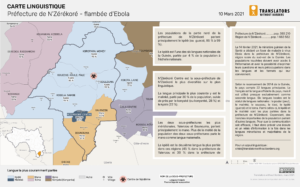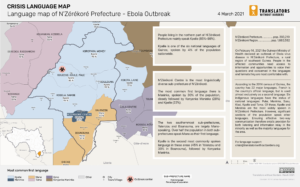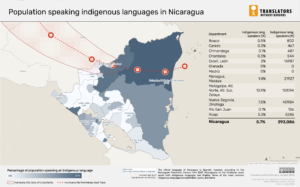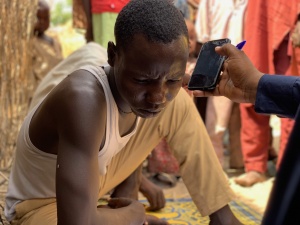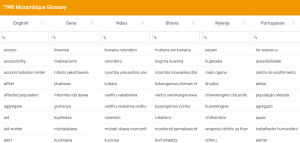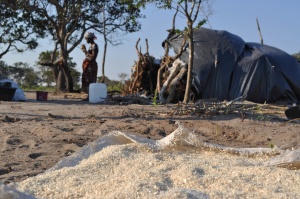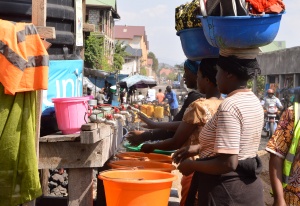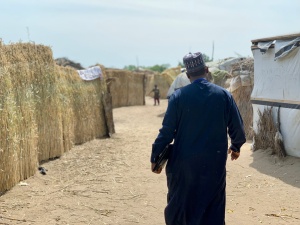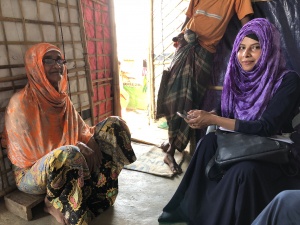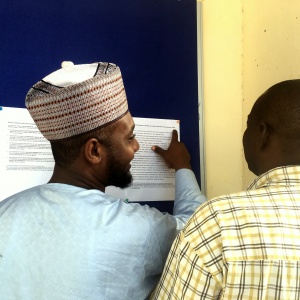Consultez nos cartes détaillées pour en savoir plus sur les besoins linguistiques et de communication en Guinée..
Ebola Outbreak in N’Zérékoré, Guinea – Crisis Language Map
Learn more about language and communication needs in Guinea.
TWB language maps for Hurricane Eta: Spanish alone is not enough
On November 3, 2020, Hurricane Eta hit northern Nicaragua and continued on to Honduras, eastern Guatemala, Belize and El Salvador. Up to 4.6 million people in its path faced the risk of flooding and landslides as a result of high winds and heavy rain, and tens of thousands evacuated for safety as homes and bridges […]
Language map for Sierra Leone
Are they listening? The challenges and opportunities of multilingual audio communication in Borno State
People affected by the conflict in linguistically diverse northeast Nigeria need to give and receive critical information in multiple languages. Options for doing so are currently limited, but rethinking how humanitarians use audio messaging to reach their intended audiences could change that. Research shows that audio is the most widely understood communication format among internally […]
TWB Glossary for Mozambique
Portuguese – Ndau – Nyanja – Sena – Shona – English During a crisis, humanitarian responders and crisis-affected people need to communicate effectively. In the linguistically diverse, low-literacy context of Mozambique, key concepts and terms can create confusion and misunderstanding if not properly translated. TWB glossaries are designed to help bridge this communication gap by […]
Mozambique Provincial Language Maps
To communicate with people affected by Cyclone Idai and Cyclone Kenneth, humanitarian responders need to know which languages people speak, and where. They need to know which formats are best to use when communicating with women, or less literate communities. Mozambicans speak more than 40 languages, and most women and many men cannot read or […]
Missing the mark? People in eastern DRC need information on Ebola in a language they understand
People at risk of contracting Ebola need information to keep themselves and their families safe. Information they don’t understand will not help them. They need clear communication in plain, localized language, in a format they understand, and through channels they trust. To learn how to better communicate, TWB conducted the rapid language needs assessment in […]
The words between us: How well do enumerators understand the terminology used in humanitarian surveys?
Data collection is the foundation of humanitarian programs, informing humanitarian response plans, program design, and safeguarding measures. If the data is inaccurate, humanitarian action may be misconceived, unaccountable, inefficient, and ultimately lacking in impact for those most in need. Language plays a critical but largely overlooked part in data quality. Translators without Borders (TWB) is […]
The language lesson: What we’ve learned about communicating with Rohingya refugees
Refugees have a right to information and two-way communication in their own language, in a format they understand, and through channels they prefer and trust. In the past year, access to information has improved in the Rohingya refugee response as a result of an increased humanitarian focus on communicating with communities. Yet language barriers and […]
UPDATE: 50th language version of the IASC principles to prevent sexual exploitation and abuse published
REPORT FROM THE INTER-AGENCY STANDING COMMITTEE – 12 July 2018. Breaking news: Translators without Borders and the IASC AAP and PSEA Task Team are delighted to announce the publication of the 50th language version of the simplified core principles relating to sexual exploitation and abuse. The translation in Kanuri – one of the main languages of northeast Nigeria – […]
Announcing winners of the 6th Annual Access to Knowledge Awards
DANBURY, CT, USA – 12 March 2018. This year Translators without Borders honors the winners of the 6th Annual Access to Knowledge Awards – creative, dedicated, and passionate supporters who are at the forefront of opening access to information through language equity. The Access to Knowledge Awards are presented annually to top contributors supporting the […]
